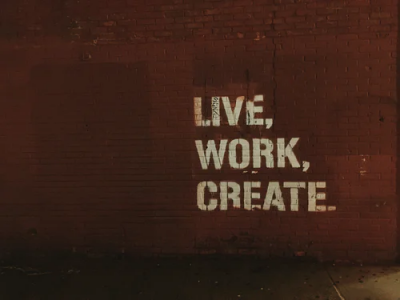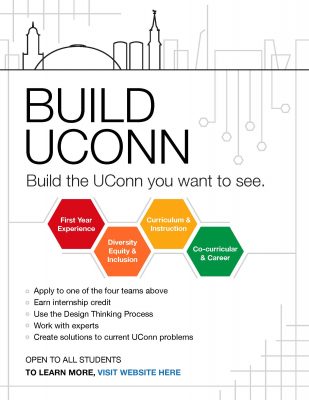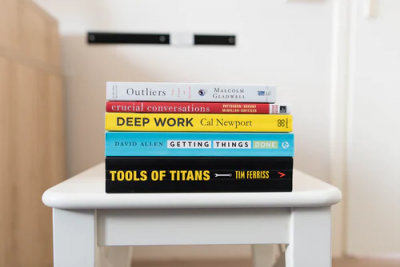
Blog
Women Entrepreneurs Leading the Way
By Emily Touch
Historically speaking, entrepreneurship has been a male driven enterprise. However, with women empowered to create their own businesses, that is rapidly changing. When looking at overall entrepreneurship in America (small and medium sized businesses) in 2019 “a new report shows that they account for 44 percent of U.S. economic activity”, and women founded ventures played a vital role in that growth. It’s important to note there have been several factors on why women have not been key in driving this important aspect of the economy forward in the past, but that has changed. In 2020 women are playing a larger role, starting more businesses, raising more money, and inspiring their younger counterparts to follow in their footsteps.
When you look at the importance of empowering women to launch their own endeavors it becomes obvious that on the global scale, societies who don’t empower women are falling behind and will not be able to catch up, as we see in parts of the Middle East. Even in modern and developed Western societies we have a long way to go. The same goes for funding, where women are severely underrepresented, particularly in raising venture capital from male VCs. Below we’ll highlight some of the reasons why driving women’s entrepreneurship is so important for the advancement of not just business, but of society as a whole and feature some of the role models in this space moving the needle.
The economy and popular culture
We publish content on this site for everyone, regardless of their gender affiliation. The reason we’re looking at the macro perspective is because rebuilding the US economy after COVID-19’s impact is not just about keeping a standard of living but also because entrepreneurship is an American value. While a glass ceiling does still exist in many industries such as in Big Tech, (which is ironic given the values many of the leaders of the industry endorse) women entrepreneurs can create their own opportunities and cultures, based on their views and skills.
According to this CNBC article, in the United States the number of women entrepreneurs is 11 million and “women are currently majority owners of 38% of U.S. small businesses, up from 29% in 2007, with these businesses employing nearly 9 million people and generating more than $1.6 trillion in revenue each year.” While that number needs to grow it’s much better compared to other countries. This is an interesting area as you see more women in political leadership roles in places like Western Europe. Nonetheless, Europe still lags in general entrepreneurship compared to the United States.
In a nod to popular culture, television shows like Shark Tank showcase the range of ideas (along with many bad ideas that are television worthy as well) of what American entrepreneurs are capable of accomplishing. The show is popular because Americans love and understand the importance of the lone cowboy/cowgirl creating the next big idea that reflects many of the values we live by. Lori Greiner, a serial entrepreneur also known as the “Queen of QVC” and one of the infamous Sharks has made a name for herself as a personality on the show alongside well-known male investors such as Daymond John and Mark Cuban.
Greiner, who built her fortune with retail and direct to consumer businesses, made an investment in Scrub Daddy, one of the show’s most successful ventures. It is a testament to the success of women entrepreneurs (and investors) when women like her and real estate entrepreneur Barbara Corcoran are prominently featured on prime-time television.
Empowering the youth
We need role models that Zoomers (Gen Z) can look up to. Half a generation ago names like Bezos or Musk did not mean anything, but now they are the leaders who have built society- changing companies. The biggest challenge–and this is particularly notable in underprivileged areas–is the lack of role models, or heroes, in order to inspire young people of what is possible. Young people need to see others who are like them overcoming the same odds. This is true for women role models as well; if all that young women see are men entrepreneurs succeeding, they will ask themselves if it is indeed possible for women to succeed at the same level.
When it comes to larger than life personalities, who serve as role models for young women to emulate, Sara Blakely is the leader. Not only is she always showing up in the most authentic way, she is also financially supporting women entrepreneurs, particularly now during the COVID-19 crisis. Young women need someone who is reliable, and who “gets them.” Spanx, the wildly popular line of undergarments that Blakely created, and the story of how she got there are inspiring. In addition, Blakely relates to her audience with her active use of social media to promote a message of resilience with quotes like “ideas, even million-dollar ones, are most vulnerable in their infancy; don’t share them with too many people. However, don’t hide your plan from people who can help you move it forward.”
Taking leadership roles
Women have different perspectives in business and as such their leadership roles steer the ship of major companies. There are examples of women in politics and increasingly in leadership roles at Fortune 500s, but entrepreneurship plays a unique role in the business world. For the fact it is so hard to build and maintain a successful startup turned company, people who have executive roles in these types of organizations must be particularly gritty and versatile.
An example of a woman who is leading one of the most successful tech companies in history is Sheryl Sandberg. Her role at Facebook is not without controversy, particularly regarding Facebook’s role in the 2016 US Presidential elections. That is not necessarily a bad thing as the COO of Facebook is being held to the same high standards which her male counterparts in Silicon Valley are. While there has been a backlash against Sandberg and Facebook in general, it is worth taking a step back to think about the society changing company she built alongside Mark Zuckerberg.
Showing that Millennials and Zoomers can do it
Millennials and now Zoomers (if you’re a student at UConn that’s you) have a bad rap for not taking the initiative and being self-entitled. There are also plenty of bad role models of tech entrepreneurs who exhibit eccentric and wild behavior. A lot of the negativity hurled at the younger generation is typical of how older generations sometimes look at youth. The reality is with the world only getting more unstable, continued ecological and environmental erosion, and the long-term ramifications of the pandemic, Zoomers are inheriting a complex and challenging world.
We like to measure business results, and this may be a controversial and unpopular choice but Kylie Jenner is an example of a Zoomer which parlayed not just fame, but a following on Instagram and Snap to become the youngest self-made billionaire in history. As a society we are living in an era of extreme fame in which we are bombarded every time we scroll through our social media feed. Understanding social, user behavior, and truly knowing your audience, is a key entrepreneurial trait that Jenner exhibited. It’s not about who is the most loathed or revered in the media, but rather using the tools at your disposal.
Diversity
This is a buzzword these days, but there is merit to this idea. It’s shocking how bad we humans are at decision making, and having a different viewpoint is key in helping us make the right decisions. This has become so important for corporate governance that leading investment banks such as Goldman Sachs are mandating diverse boards. The reality is the world has changed and we need to widen the tent to include women (as well as people of color.) When we look at the landscape of entrepreneurship soon it will be led by those from diverse backgrounds and women.
Who is a better example of this than Oprah: not only did she overcome childhood trauma, her early forays into television were not successful. Before she was the iconic brand that she is today she had to build herself up, without help and without any role models to whom she could aspire. Entertainment is one of the most difficult industries to break into, and to consistently succeed at. Oprah has not only maintained longevity, but she pioneered the idea of a personal brand and has been able to reinvent herself and remain relevant year after year.
For the United States economy to get back on track, it’s not enough for some businesses to get stimulus checks. What we need is a focus on engaging and bringing up women entrepreneurs in order to build this decade’s successful businesses. It is important to highlight the accomplishments of successful women who have been trail blazers in order to inspire the next generation of women entrepreneurs who will help rebuild this country.








